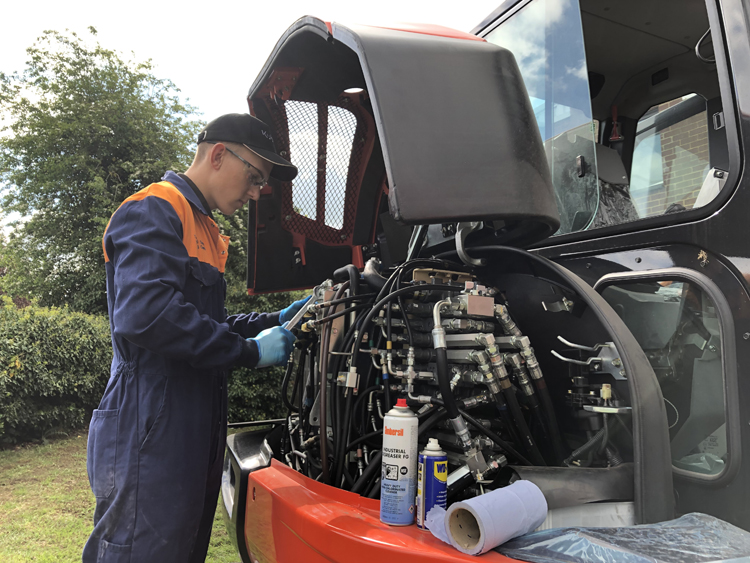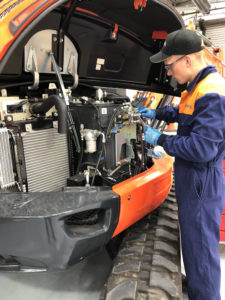How do we weather the skills gap storm and nurture talent within the construction industry? Glen Hampson, Business Development Manager, Kubota UK, gives his views
The construction industry is currently under a lot of strain, with recent figures showing the industry to have slumped amid heightened levels of uncertainty over Brexit. We’ve also seen that one in twenty construction companies believe their workforce doesn’t have the skills required both for now and for the future. This is a number that is only set to increase as skilled workers retire and the technologies and machines they use every day continue to develop at the rapid rate we are currently seeing.
The UK government announced in November 2018 that it would invest £22 million to reduce the skill shortage across the industry. This investment will be used to set up ‘hubs’ based at live construction sites, in order to train up thousands of workers with the skills the industry is currently lacking. The investment is positive, however, if the sector is to increase productivity and thrive, then more must be done by the industry itself.

Getting in at the grass roots
Earlier this year, the Civil Engineering Contractors Association’s chief executive Alasdair Reisner, claimed that the industry and government need to continue to work together to boost recruitment and training in the UK. If companies working across the sector are able to provide the younger generation with the schemes and the experience needed to excel in a career in construction, the skills shortage will no doubt, reduce. It will also go a long way to encourage those who have potentially been put off by a career in construction, to pursue what could be a successful and fulfilling profession that will last them a lifetime.
For example, I asked Jordan Scott-Ely, a construction apprentice here at Kubota UK, about his feelings towards a job in construction and he told me that he had always “had an interest in mechanics, and knew from an early age that I preferred working with my hands, so I wanted to be in a line of work which allowed me to do so – construction seemed the perfect fit!”
By having the opportunity to work through what aspects of working in the industry that he liked and disliked, Jordan was able to pursue opportunities that he might not have had a chance to explore if he hadn’t applied through an apprenticeship scheme, including a placement at Bryco, a construction plant and parts dealership. Jordan says that the opportunity gave him “insight into the engines that I work with day to day. I worked there for 6 weeks right alongside their current technicians which was invaluable, as I got to experience everything through the eyes of a full time employee.”
 But what skills do the future workforce need?
But what skills do the future workforce need?
With such a focus on the skills of the future, such as the use of AI, virtual reality or even 3D printing, it is essential that schemes offer new recruits training in the latest technological advancements. Failing to recognise the importance of this will do nothing to help shape our workforce of the future. While the use of these technologies may not be commonplace yet, knowing and experimenting with how they can be used and improve common processes will be essential for everyone working in the construction industry.
It is also important that those that enter the sector via apprenticeship schemes are able to follow their interests and are given full exposure to what their career will entail. Jordan felt this approach meant he was able “to understand the individual components of an engine and how they work. As well as equipping me with the specific knowledge of individual machines that I will need, I also now have a greater level of in-depth knowledge of mechanics overall – from identifying an issue to working through structured processes to obtain the right ‘first time fix’ and knowing the symptoms that caused the issue in the first place.”
The future is bright
I’m sure if you were to ask any construction professional on their thoughts on the skill shortage, they would show some concern about where the industry is headed. We’re currently experiencing turbulent times, but with a combined focus from the government and businesses in the sector on closing the skills gap, we will all be able to look toward a brighter future. If more schemes are put in place to nurture, upskill and entice new recruits into the industry, the sector will be able to weather the current storms and thrive both now and for decades to come.









